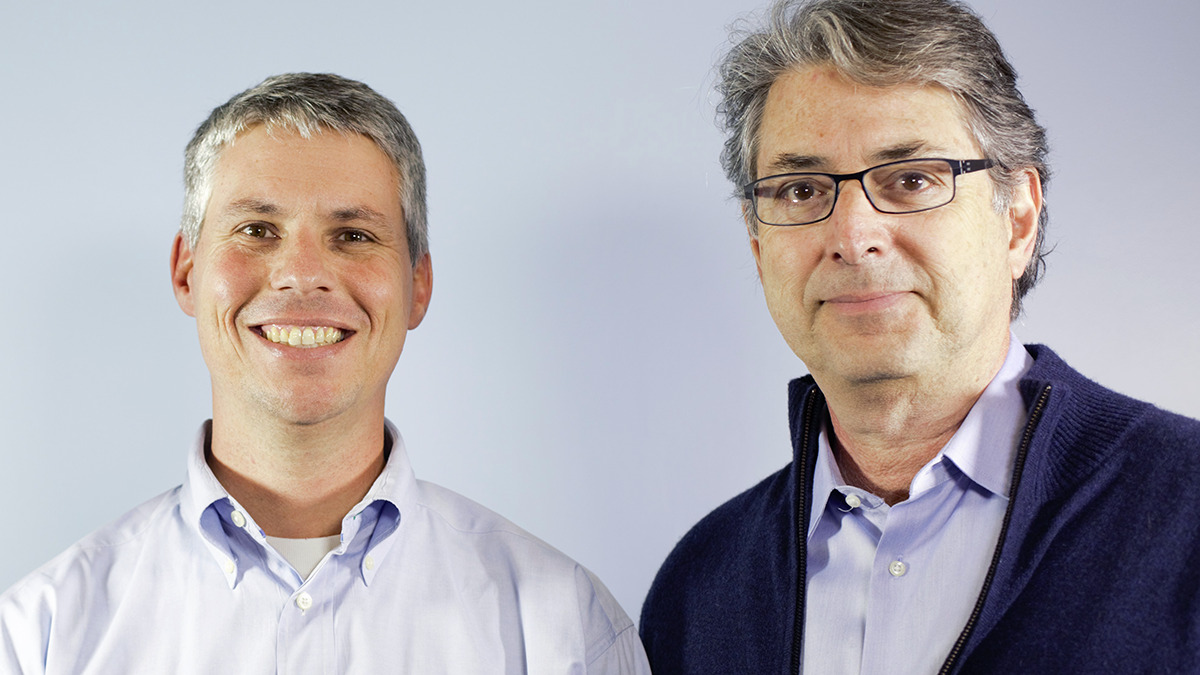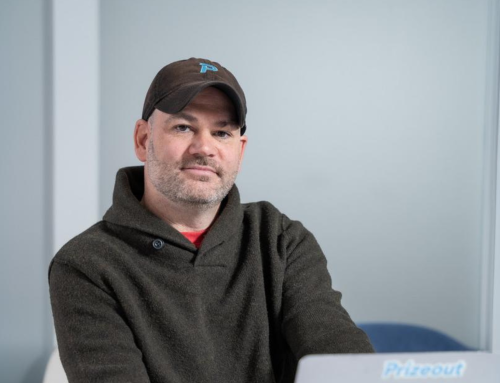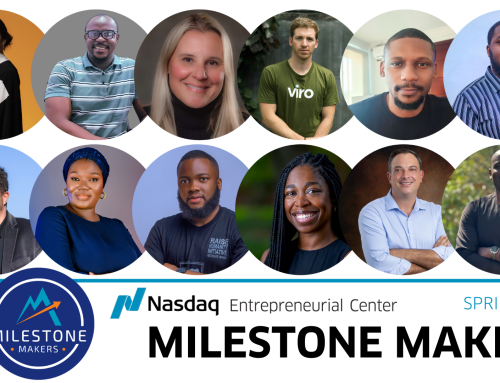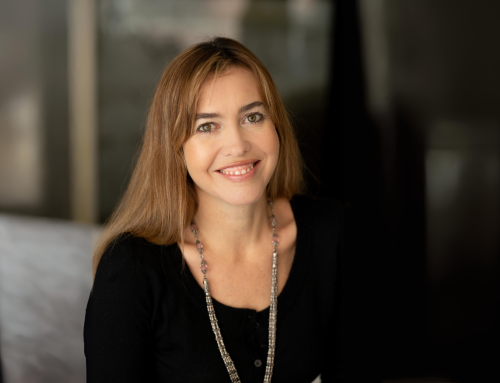BioCeryx is a molecular diagnostic company on a mission to liberate precision medicine — which it does with unique tech that delivers advanced clinical genomic information to physicians and patients everywhere. It’s aim is achieving transparency — especially in a space where time is of the essence. By increasing access to essential information, patients everywhere can access clinical information seamlessly, giving them the right answer for the right test at the right time. Today, many precision medicine diagnostic and screening tests are constrained to a small number of centralized labs capable of performing highly complex molecular workflows. The high cost of the tests and long lead time for results can limit their use and utility, and that’s where BioCeryx is changing the landscape. The founders, Thomas Musci (Chief Medical Officer) and Robert Balog (CEO) took a moment to update the Nasdaq Entrepreneurial Center on their journey as a founder so far.
What does “entrepreneurship” mean to you?
RB: Entrepreneurs are modern day explorers, many times going in the opposite direction of conventional wisdom. Entrepreneurship is discovering new markets or customers with products or services. When we set out to accomplish our purpose, we do so with no maps, mile markers or blueprints.
TM: At the end of the trail our products and services are intended to change peoples lives, which is exciting, but the true essence of entrepreneurship is the journey we embark on with a core team.
How did your company come to be?
RB: The a-ha moment came when Tom came to the Stanford Research Institute (SRI) as an entrepreneur-in-residence. BioCeryx is a spin-out of SRI based on a technology that radically simplifies the way DNA analysis is performed. SRI’s Venture and Licensing group has a rigorous process for identifying applications of technologies developed at SRI and is responsible for spinning out companies to disrupt markets through commercialization of these technologies. I had spent 6 months working to identify a market, without much success in finding a beachhead that our technology was uniquely suited to address. Tom instantly recognized how our technology uniquely solved a key issue in precision medicine.

What is the biggest experience or lesson gained on your journey so far?
RB: before becoming CEO I spent some time in the military. One of the mantras in the military is “Mission first, People always”. Early on at BioCeryx I realized that I could take this principle and apply it in a private company setting: it is all about building the right company culture. Our company purpose is obviously our first priority, it is how we deliver value to our customers and return to our investors. However, at a startup, we are asking our team to work harder, work smarter and develop expert knowledge quickly, often with less resources. “People always” is about making sure we are focused on the teams’ needs too. The best way we have to always take care of our team is by being transparent. Transparent about the market or technical challenges, our successes, our mistakes, and how we will be successful. Being able to pull from prior experience has also taught me that team diversity is key to build a resilient company, and that we all have crucial skills to bring to the table from our diverse experiences.
TM: I agree with Robert. I would add that putting the right people together – who are aligned with the team’s mission and willing to do what it takes to solve problems – has been, and will continue to be, critical for our success.
How is your company changing the landscape?
RB: The last 20 years have seen the rise of personalized medicine based on the patient’s genetic condition. Precision medicine is here to stay. We now need to make it ubiquitous, and BioCeryx will bring precision genetic insights to everyone.
Today, only 15% of patients benefit from the latest precision medicine advances. This is because only 15% of patients get the clinical genetic testing they need. There is an urgent need for the other 85% of patients to benefit from precision medicine.
The diagnostic industry is mired in a complex system of collecting blood, sending it to a centralized facility, performing tests and then sending the data back to the doctor. This is wasteful and slow, and limits the number of patients that can benefit from it.
BioCeryx will enable rapid testing wherever it’s needed to enable everybody to have access to useful genetic information. We do this by marrying advanced engineering, microfluidics, molecular biochemistry and machine learning.
We’ve seen what happens with centralized approaches when technology enables democratization. In the time of mainframes, most in the industry did not see the need for a PC in everybody’s home and we know how that played out.
What do you wish you knew when you started? Is there anything you would do differently?
It’s going to take longer, take more money and more effort than you anticipated. It is probably in every entrepreneur’s nature to be an optimist, because after all only optimists take action. But this can also be our Achilles heel. Understanding the risks while still advancing quickly is something that I’ve learned over the last couple of years and that we’ve incorporated into how we make decisions looking forward.
What advice/credo do you live by as you grow the business?
RB: A good plan today is better than a perfect plan at some point in the future. It is always tempting to collect more data before moving forward, but I live by the principle that clarity follows the action, and not the other way around.
What advice do you have for fellow entrepreneurs about building and leading teams?
TM: Ultimately, it is all about the team. Bringing truly innovative solutions for clinical medicine requires taking risks, meeting unforeseen challenges and solving problems. Building a team of truly passionate, dedicated and talented scientists and engineers that executes effectively is not easy – but relies on mutual respect and trust that everyone is pulling in the same direction. Ultimately it will be the team that delivers value, and not the initial idea, which will serve as a launching pad but not as the final destination.
Where do you find inspiration when faced with challenges?
RB: I often say to the team, and to myself, “ work the lock, don’t look at the dogs”. It’s a corny quote from the old Mangum PI show, the two Dobermans are running towards Tom Selleck while he is picking a lock to open a door that would make him safe. To me, it exemplifies the principle that to be successful you need to focus on working on what you can influence, and not get distracted by other seemly pressing issues that are out of your control, and that might actually derail you.
What does “success” look like for you? What do you think will help you achieve it?
TM: For me, success is bringing state of the art molecular diagnostic tests to patients everywhere – particularly those patients that do not have access today, either because of cost or availability. We can achieve success if we stay focused on the task at hand and on what brought us together in the first place – our mission.
RB: I started my career building instruments for the human genome project. At the time many of us thought that deciphering the genome sequence would change everything. I still believe it, it just took longer than we thought, and twenty years later we are starting to see the return on that knowledge. It is a unique industry because we have the opportunity to help people live longer, with a higher quality of life.
What is your proudest and darkest moment so far? Share a key high and a key low from your journey if you can.
RB: The darkest moment is fundraising. We were convinced based on our experiences that small laboratory customers wanted to run next generation DNA diagnostics but lacked the technical expertise to run modern tests. Convincing investors of our insight was challenging as we don’t fall cleanly in any of the “hot” buckets many investors are chasing.
The high point has been seeing what a team of talented and passionate people can achieve, from what was just the vision of a small handful of us. What we are trying to do is really hard: it sits at the crossroads of advanced engineering, microfluidics, molecular genetics, and artificial intelligence, and seeing the different subteams at BioCeryx run with it and deliver exceptional progress in a coordinated manner is incredibly rewarding.
What lesson did the past year have for you?
RB: Communication and working at the boundaries of disciplines has been key in 2018 as our product required us to simultaneously build an advanced engineering hardware platform, a consumable microfluidic device, a bespoke biochemistry, and a machine learning algorithm. As I look forward to the end of 2018 into 2019, we are excited for our customers to start field testing the platform in their labs, and for patients to start benefiting from it.
Many entrepreneurs continue to perfect their daily routines to support their work and greater vision; would you mind sharing your morning routine or a regular ritual that grounds your work each day?
RB: I have always been someone who liked the quiet of the morning. For me, getting an early start is important. The first 30 minutes of the day are focused on the three key metrics of success for that day. This enables me to identify the truly important items, otherwise, with the unavoidable distractions of the day, perceived urgent items overtake the important tasks.
TM: I usually start the day with meditation and/or exercise. It allows me to have a clear focus for tackling my first task which is usually to deal with time-sensitive emails. Having some time to think about the goals for the day is a good start for me.
What kind of an entrepreneur do you want to be known as, as in, what do you want your legacy to be?
We want to be seen as trustworthy folks with high integrity. The name of our company ‘BioCeryx’ is from the greek word ‘ceryx’, who in Greek mythology was the son of Hermes. In Homer’s time in Greece, the ‘Ceryx’ was a profession of trusted, inviolable messengers between states, even in time of war. For us being the ‘trusted messengers’ of genomic or genetic diagnostic results between patients and their physician or health care provider is essentially our overarching goal and legacy.




Invite a Friend
Close